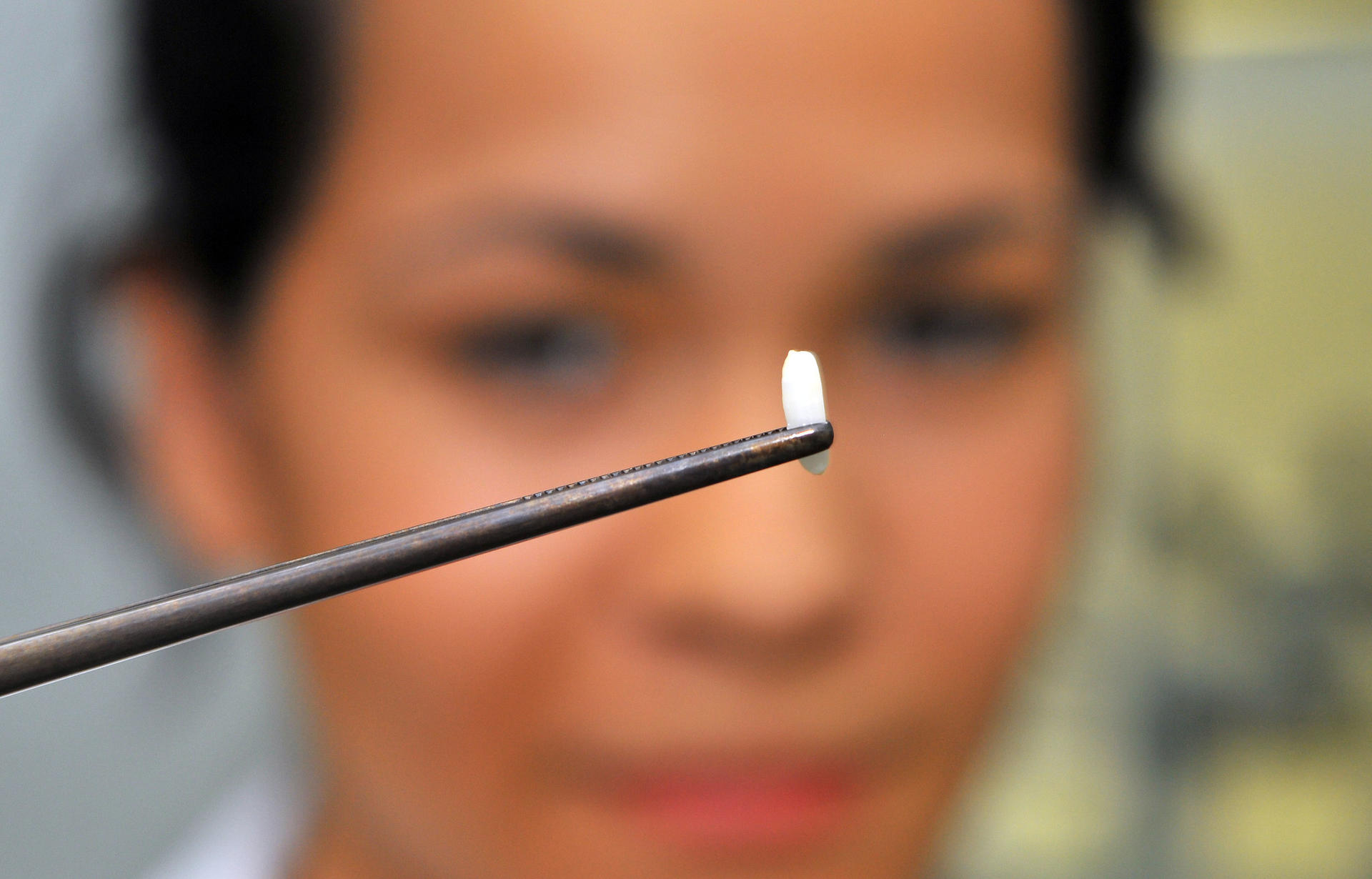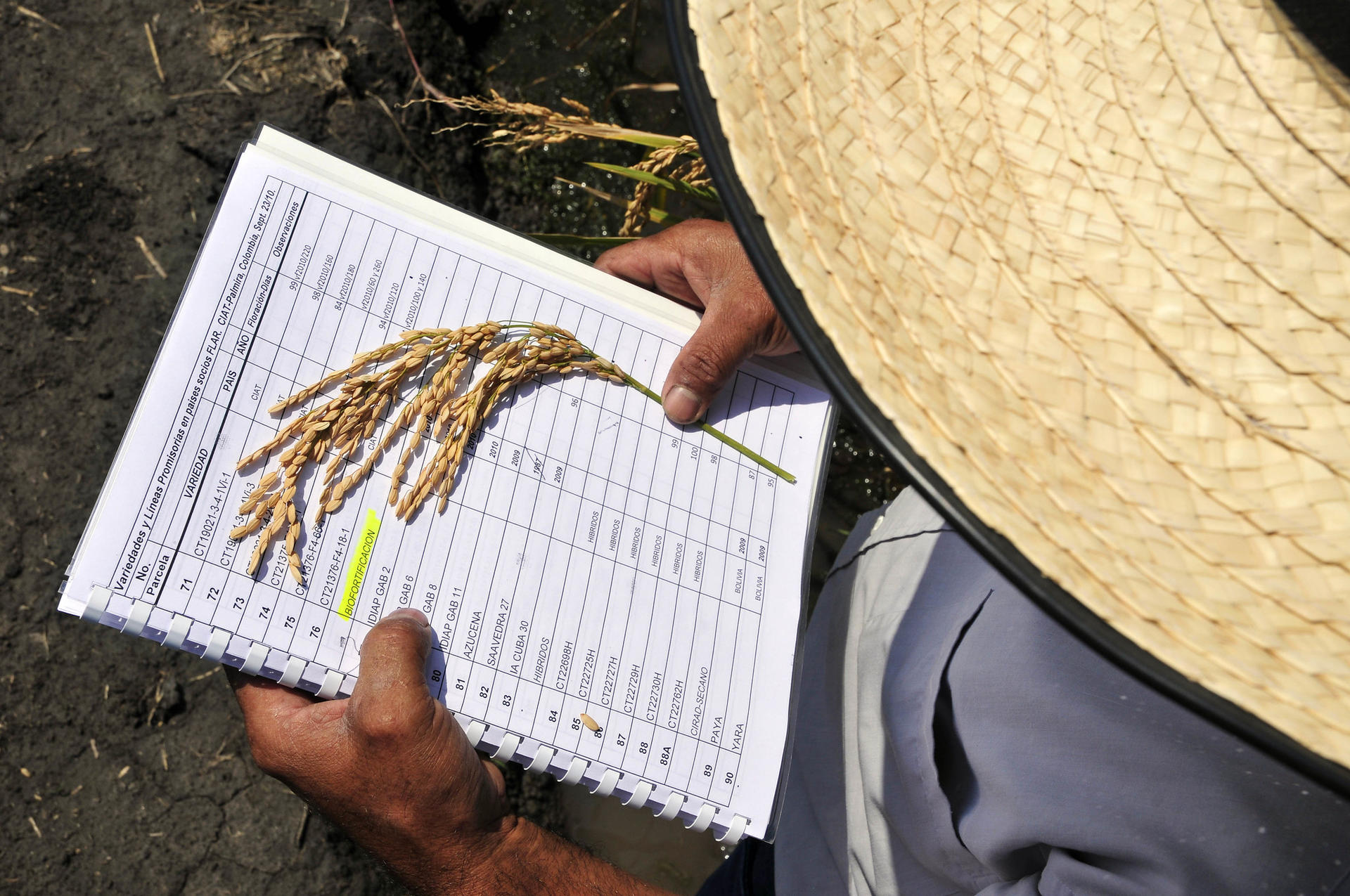Maintaining fundamental priorities with rice research

Almost all applicable scientific advances begin with a simple question – and a sometimes “impossible” goal. The Alliance rice lab’s successes all have their roots in fundamental research.
When I first joined the CGIAR in 2004 we knew exactly what we were doing. However, we didn’t know where the research was taking us.
I was an undergraduate studying molecular markers in wild rice species. The environments in which they were grown suggested those species carried genes that allowed the plants to grow under stressful environments. Finding the markers was critical to understanding how they did this.
The next challenge was to cross wild rice varieties with their domesticated cousins to naturally introduce these tolerance traits into the crop. To our surprise, we did this. It was probably the earliest such success of its kind.
Fifteen years later, this work has improved the rice fields of hundreds of thousands of farmers across Latin America. This underscores the value of basic research in CGIAR science, which must remain a priority in One CGIAR.

Adoption at scale
Perhaps the biggest success for our research in 2020 was Colombia’s decision to not consider gene-edited rice “typical” genetically modified organisms, or GMOs, which, in general, are broadly misunderstood.
Our gene-edited rice uses only the organism’s original DNA. ICA (Colombia’s Instituto Colombiano Agropecuario) authorized open-field planting of the first gene-edited rice varieties for resistance to BLB, or bacterial leaf blight. The editing was done with CRISPR, which won two women the Nobel Prize in Chemistry 2020.
Fedearroz, the national rice-growers association, registered two Alliance hybrids last year that were developed to increase resilience to climate stress and pests. These first two rice hybrids registered in Colombia were developed in record time for rice hybrids – nine years, by the HIAAL consortium.
Additionally, we released Colombia’s first biofortified rice to Fedearroz and Universidad de Cordoba. This zinc-rich variety was also given to farmers as part of the CGIAR’s COVID-19 response.
Hothouses today to prepare for a hotter tomorrow
Today, we know the priorities more precisely: We need to make rice more tolerant to heat stress without sacrificing yields, nutrition value and quality. We need varieties that require less water and emit less planet-heating methane.
We must not lose our focus on basic research, particularly in Latin America. The Alliance’s rice facilities are the only like it in the region. Scientists need time to ask and answer the basic questions that will be critical to a food-secure future – just as they have done in the past.
Read more on:
Improving Crops
Research Highlight
IRRIGATED FIELDS CAN BRING TREMENDOUS BENEFITS TO RAIN-DEPENDENT FARMERS
The Alliance and the Latin American Fund for Irrigated Rice (FLAR) published a study about how water harvesting in Nicaragua and Mexico, combined with smart crop management practices, allowed small- and medium-scale farmers to increase their yields of rice, maize, beans, and high-value crops by two to four times in comparison with historical yields obtained under rainfed conditions.
